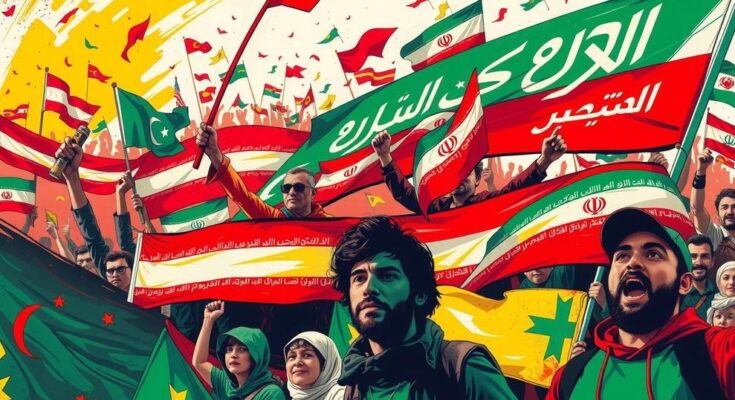Protests in Iran are escalating, with farmers in Isfahan demanding water rights, oil workers in Lavan seeking better wages, and families of political prisoners in Tehran opposing executions. This widespread discontent reflects deep-seated grievances against the Iranian regime’s mismanagement and repression, suggesting ongoing unrest ahead.
Protests are intensifying across Iran as various social groups unite in their demands for justice and equality. Farmers in Isfahan, oil workers in Lavan, and families of political prisoners in Tehran are all expressing their discontent with the regime’s mismanagement and repression.
On March 28, Isfahan farmers protested to reclaim their water rights and push for the reopening of the Zayandeh River. Government mismanagement and water diversion favoring military industries have severely impacted the farmers’ livelihoods. Despite recent promises to release water from the dam, there remains significant skepticism regarding the regime’s commitment to fulfill these promises.
The farmers’ protests reflect broader issues of water scarcity worsened by the policies of the Islamic Revolutionary Guard Corps (IRGC), which prioritize industrial projects over sustainability. As one protestor lamented, “We only want water, yet they steal it and tell us not to protest. How can we stay silent?”
On March 26, workers from the Iranian Offshore Oil Company in Lavan resumed protests seeking fair wages, improved job classifications, and enhanced management policies. Concurrently, workers from Haft-Tappeh Sugarcane Company in Shush gathered to demand job security, showcasing the growing dissatisfaction within Iran’s labor movement. The government has failed to adequately address these concerns, leading to fears of increased economic instability.
On March 25, families of political prisoners continued their weekly protests, part of the “No to Executions Tuesdays” movement, outside Evin Prison in Tehran. They are demanding the cessation of death sentences imposed on their relatives, notably for prisoners Vahid Bani-Amerian and Pouya Ghobadi, who face execution.
Tensions heightened in southeastern Iran on March 27 when armed attackers targeted a police patrol in Iranshahr, resulting in one security officer’s death and injuries to two others. While official reports downplayed the incident, local sources noted that the region has witnessed frequent clashes between security forces and resistance groups.
As protests gain traction across various sectors, the Iranian regime is confronted with increasing societal resistance. Farmers, laborers, and families of prisoners share a collective dissatisfaction rooted in systemic corruption and repression. With escalating pressure from both the populace and international observers, Iran’s protest movements are poised to continue, indicating persistent unrest in the future.
The ongoing protests in Iran signify a collective struggle against mismanagement and repression by the regime. Farmers’ demands for water rights, workers’ calls for fair wages, and families’ pleas for justice emphasize a widespread discontent with systemic issues. As various groups unite in their grievances, the Iranian government faces mounting challenges that could lead to further socio-political unrest in the near future.
Original Source: www.ncr-iran.org




